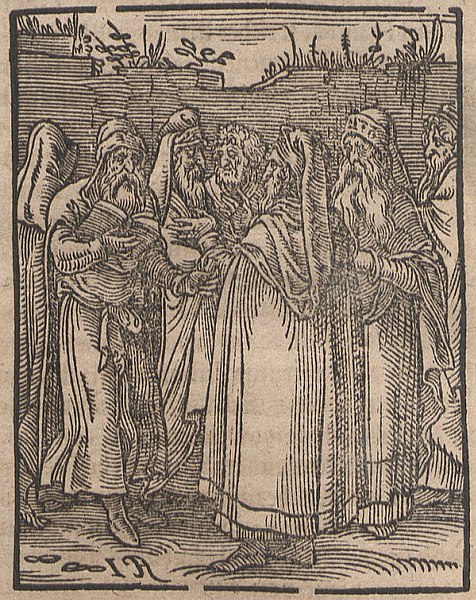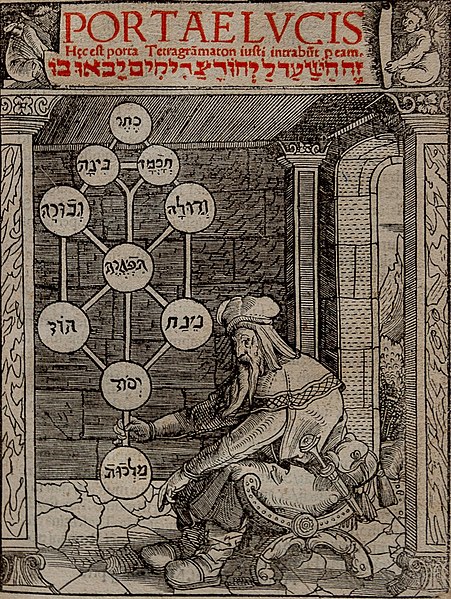Sar Shalom Sharabi, also known as the Rashash, the Shemesh or Ribbi Shalom Mizraḥi deyedi`a Sharabi (1720–1777), was a Yemenite Rabbi, Halachist, Chazzan and Kabbalist. In later life, he became the Rosh Yeshiva of Bet El Yeshiva in the Old City of Jerusalem. His daughter married Rabbi Hayyim Abraham Gagin of Jerusalem, making him the great-great-grandfather of Shem Tob Gaguine, the "Keter Shem Tob." His son was Yitzhak Mizrahi Sharabi and his grandson was Chief Rabbi Chaim Abraham Gagin.
Sar Shalom Sharabi's tomb on the Mount of Olives
Kabbalah or Qabalah is an esoteric method, discipline and school of thought in Jewish mysticism. A traditional Kabbalist is called a Mekubbal. The definition of Kabbalah varies according to the tradition and aims of those following it, from its origin in medieval Judaism to its later adaptations in Western esotericism. Jewish Kabbalah is a set of esoteric teachings meant to explain the relationship between the unchanging, eternal God—the mysterious Ein Sof —and the mortal, finite universe. It forms the foundation of mystical religious interpretations within Judaism.
Jewish Kabbalists portrayed in 1641; woodcut on paper. Saxon University Library, Dresden.
Kabbalistic prayer book from Italy, 1803. Jewish Museum of Switzerland, Basel.
Latin translation of Gikatilla's Shaarei Ora
Grave of Rabbi Akiva in Tiberias. He features in Hekhalot mystical literature, and as one of the four who entered the Pardes





